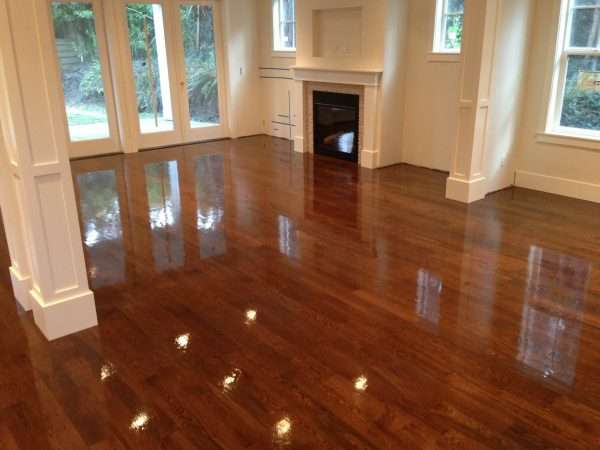Hidden Expenses When Purchasing A Home
June 3, 2024
The process of looking for and buying a new home can be both exciting and nerve-racking. If this is your first time purchasing a home, those emotions may be amplified. You’ll want to make sure you have everything you need so that you can deal with any situation that may arise. This is why you should be aware that the list price of the home you’ve chosen is not the total amount you’ll pay. There are a few hidden costs to be aware of before signing the paperwork. Knowing those costs ahead of time will make it easier to be excited on closing day.
Here are a few things to keep in mind:
One of the most significant advantages of living in a rental property is that if something breaks or malfunctions, you simply contact your landlord. They will also handle landscaping tasks such as snow removal and lawn cleanup. When purchasing a new home, it is always a good idea to have a home inspection performed. You’ll have a better idea of what you’re getting yourself into this way. You may also want to set aside money for maintenance and repairs, which are unavoidable when you own your own home.
Every house is unique. The cost of utilities varies depending on the size of the home, its location, and the types of utilities it requires. The average home spends about $111 per month on electricity. When compared to a two-bedroom apartment that costs $30 to $50 per month, this can quickly add up. It goes without saying that the larger your living space, the higher your energy bills will be. When you’re in the process of buying a new home, it’s easy to overlook this detail. But don’t let that stop you from being excited. Simply take this into account when calculating your overall budget.
Most of us have heard of closing costs, but what exactly are they? These fees can include a variety of items and vary from home to home. Closing costs, for the most part, refer to lender fees, a down payment on home insurance, miscellaneous taxes, and title insurance. These are the most common causes of closing costs, but they may vary depending on your specific situation. In general, closing costs will range between 2% and 5% of the home’s value.

Mortgage companies will not lend you money unless they take their own safety precautions. They will charge you interest in order to reduce their risk in trusting you to pay your mortgage accurately and on time. This is an additional expense that will be added to your monthly payments. Mortgage interest rates vary depending on your credit, but on a 30-year fixed-rate mortgage, you can expect to pay anywhere from 3% to 8%.
Also Read: Rental: Tips for First-Time Landlords
Though it varies by state, the average American will pay more than $2,000 in property taxes per year. However, in some states, such as New York, you will pay even more, which is close to $7,000 per year on average. This is definitely something you’ll want to think about when looking to buy your new home, and it’s often overlooked when you’re a first-time homebuyer.
Property taxes are typically included in your monthly mortgage payment, making them easier to manage. However, in addition to other lumped-in fees, property taxes will increase your monthly payment and may increase year over year. This is important to keep in mind when deciding how much money to spend on the list price.
Buying a new home necessitates time and research. You’ll want to make certain that you’re making the right decision when purchasing the home of your dreams. WowMover will be there to help with your moving stress when you finally put in that home offer, even if the decision is yours and yours alone.
Related Articles:






Yep!Real estate can generate profits, including your own house.
Perhaps by renting out storage space in your garage or basement, you are bringing in some extra money. You could even rent out an occasional room on Airbnb, or rent a room through the sharing economy to a roommate, or some other sort of house hacking.
By renting out an entire house, ready to up your game?
The purchasing of long-term rental properties, along with a few threats, comes with a slew of benefits. The good news is that by good ol ‘fashioned planning, you can minimize each risk.
You gain financial freedom when you generate enough rental income to cover your living expenses, and your day job becomes optional.
Here’s what you need to know about the construction of passive rental property revenue and how to ensure that you always come out ahead.
Why should you purchase a property for rent? As compared to bonds or securities or a mutual fund, what makes it a good investment?
Consider these benefits for long-term real estate investments as you explore where to invest your money.
Rental assets come with an abundance of tax advantages.
The IRS allows any possible expense to be deducted, plus other paper expenditures such as depreciation. You can subtract most closing costs, property management costs, mortgage interest, property taxes , insurance, legal fees, maintenance costs, and more on most closing costs (and some can be depreciated).
Best of all, even though you take the regular deduction, you will take these deductions. No needed itemizing!
You cross your fingers when you buy stock, and hope for the best. Also, bonds that state their returns upfront, depending on the interest rate environment of the day, fluctuate in resale value.
By comparison, rental properties offer returns that you can measure in advance. You know the rent on the market, you know your purchase price, and you can accurately forecast expenses.
Where too many new investors in rental property screw up is in ignoring or underestimating the expenditures that are irregular, yet unavoidable. Alternatively, investors need to take the long-term average of costs such as vacancy rate, maintenance, and major repairs. They don’t hit on a monthly basis but hit semi-regularly.
Fortunately, you can reliably forecast them. For example, by interacting with local property managers and landlords who work there, you can easily discover the vacancy rate for a given neighborhood.
Rental properties eternally produce income.
They never age, they never quit paying dividends, they never declare bankruptcy. They can burn down, of course, but insurance protects you from the risk.
You’re beginning to collect income now, and you’re going to collect even more income in 30 years from now. After the initial property acquisition, all without having to raise a finger, if you want to employ a property manager. If you don’t, more and more options are at your disposal to automate your property management.
You have to deduct inflation for most investments to obtain the actual return. For instance, if a five-year bond pays 4 percent interest, but inflation runs at 2.5 percent over the five years you keep the bond, then the actual return on investment is only 1.5%.
For rental properties, this is not the case.
Not only are rents rising alongside inflation, they’re one of inflation’s main triggers. Rents almost always increase at or faster inflation rates, so you’re secured implicitly against the slow ebb of inflation that drains your returns.
The impact compounds when you use the money of other people to purchase your rental properties, too.
You’re faced with a particular issue when your retirement portfolio consists of stocks and bonds: they often don’t generate enough ongoing income to survive on.
This means that over the course of their retirement, seniors have to gradually sell their nest eggs, and hope they don’t run out of money in their lifetime. They worry about issues such as secure withdrawal rates and return risk series. Living with it is a horrible fear and many retirees are continually testing their remaining fund balance for themselves.
Rental properties, on the other hand, keep producing revenue indefinitely with an average yield of 10-15%, which is almost twice what stocks and bonds would give you. Not to mention, in order to produce that kind of money, you do not have to sell your rental property.
Just the opposite: over time, they just become more important.
Rental properties increase in value over time as a general rule, since demand for housing increases over time. In the meantime, housing supplies, given the steadily growing labor and material costs and the limited supply of suitable property, are becoming increasingly costly to manufacture.
Values are going up steadily, and your mortgage balance is going down steadily. So, even though you raise money on rentals every month, you build equity, too. For instance, in a good market, property prices across the United States rise about 3-5 percent each year.
Real estate lets you leverage the resources of other people to create your own asset portfolio. A portfolio that pays you cash to boot each month.
Thus, with a rental property loan, you can fund much of the purchase price, make a monthly profit, and then your tenants pay off the loan for you. Speak of win-win!
If you want, you can also use your rental cash flow to pay off your mortgage sooner and get rid of the monthly payment.
But before you do, note that each month your mortgage payment remains the same, even as your rent increases. That means that at a faster pace than your rentals alone, your profit margin increases.
Imagine $1,000 in-home rentals, $500 a month in rental property loans, and a total of $400 in non-mortgage expenses. So, your margin for monthly cash flow is $100.
Rents in your market are growing by a healthy 4 percent over the next year. The rent goes up to $1,040, but it remains the same for most of your expenses.
So, your monthly cash flow grew from $100 to $140: a profit gain of 40 percent, even though the rent increased by just 4 percent!
That’s the beauty of leverage.
Before committing, be sure to compare rental property loans with interest rates , fees, down payments, and conditions, as most loans last 15-30 years and refinancing is costly.
Also Read: Things to Consider Before Moving into a Rental Property
All upside and no risk is no investment. And although with a rental property calculator you can predict returns, not everybody calculates it correct.
Here are the three main threats facing rental property owners, beyond miscalculations.

Vacancies are a fact of investing in rent. No property will ever have a 100 percent occupancy rate.
So many tenants are worried: what if I can’t rent my property and for a long time it stays vacant?
If before buying, you ran the numbers correctly in a rental property calculator, you can budget every month for the vacancy rate. For instance, if the neighborhood of your property has a 5 percent vacancy rate, 5 percent of any rent payment for potential vacancies should be set aside.
Bear in mind that there are no high vacancy rates in healthy neighborhoods. You should have no problem re-renting your property if you choose a neighborhood with relatively high demand.
What happens if the rent stops being paid by the tenants?
Often it occurs. But thankfully, not too much, and you have many ways to avoid losses due to rent defaults.
Second, by screening your tenants extensively, you can avoid losses. That begins with reports like credit, criminal, and eviction reports, but there’s no end to screening. You can also check their history of wages, employment, and rent payments.
But you can still buy insurance against your defaulting tenants nowadays. It usually costs $300-400 a year, and the insurer covers it while you file eviction and find new tenants if your tenant stops paying the rent.
Because of rent defaults, landlords will essentially eliminate the possibility of damages between aggressive tenant screening and rent default insurance.
Also Read: How to Protect Your Vacation Rental Property
Another danger comes from the damage to your property by tenants. And let’s face it: you’re offering them ownership of hundreds of thousands of dollars worth of properties.
With tenant screening and insurance, you can also minimize this risk. Stop by their current home and see how they live before accepting an applicant that otherwise looks fine. Are they treating it with respect? Are they clean?
They’re treating that house, though, that’s how they’re treating yours. Decide correspondingly.
Some cover against harm caused by tenants is also offered by insurance policies. But make sure to carefully read the fine print and ask your agent what is covered and what is not.
But a simple security deposit is the conventional defense against tenant harm. Take the cost out of their deposit when they move out if they harm your house.
Finally, carry out semi-annual checks to find problems early, and either evict or non-renew tenants who do not treat your rental property with the respect it deserves.
Like any investment, rental properties do come with risks. But with simple planning and foresight, you can handle and minimize those risks.
You will gain continuing income in exchange, which increases much faster than inflation, and appreciates all the time. Profits from assets that you can largely acquire with the money of other citizens, even though you reap tax benefits and generate equity.
You can cover your monthly living expenses with ample passive rental income, and achieve financial independence and early retirement (FIRE).
If there’s a drawback, it’s that rental properties take some effort and experience to purchase, beyond the risks described above. It’s a barrier to entry, which prohibits investing by the average citizen.
But it’s that very barrier to entry that keeps the returns higher for those willing to take on that initial investment of knowledge and work. In other words, that barrier weeds out the indifferent, leaving only those who truly want it.
Related Articles:






A house survey is an examination of a property’s condition that might alert a potential buyer to potential problems. A surveyor will come to the residence and provide a report on the problems. What should you watch out for during a survey? We spoke with industry professionals and developed a list of the top four considerations when purchasing a home.
The condition of the room is one of the top four concerns for a buyer. While tiles may be replaced, other issues such as roof leaks can be costly to resolve. Remember to inspect downpipes and gutters as well.
Insulation is a typical survey concern, but it can be quite important to a potential buyer. Better insulation saves money on electricity and makes rooms warmer. Fortunately, the insulation material is inexpensive, and placing it on walls will take little time. Consider an insulated floor instead, which will take longer to install but will save you money in the long run.
Although structural vibrations can appear to be quite threatening, they rarely endanger the house’s stability. However, if the surveyor discovers cracks larger than 10 millimeters, this could signal a potentially dangerous issue. A thorough study will be required to determine the source of the cracks and ensure that the house’s structure is secure.
Humidity is a prevalent problem during a house survey, particularly in older homes and antique houses. This is a simple problem to solve, especially when dealing with small surfaces. If the damp area is larger, the job may be more costly, especially if it requires the replacement of complete walls. Furthermore, determining the reason and devising a long-term cure will be critical.

Related Articles:






Purchasing a new home that is far away from your current one is a major life decision because it entails a significant financial investment. Having a new home where you can make new friends and start over is also an exciting and adventurous experience. Buying a new home far away from your current location, on the other hand, can be a rather stressful endeavor. It is associated with a great deal of mental and emotional strain. From deciding on the best place to relocate to, to finding the right realtor, buying within your budget, and finally planning your relocation, we’ve got you covered.
Here are a few pointers to help you with your home search.
When buying a new house, you must know how much money you have set aside for the purchase and relocation. You must be able to calculate the true cost of the house as well as the costs that would be incurred. Figure out how much it would cost to buy a new home, hire a real estate agent, hire a relocation specialist to help you move out, homeowner’s insurance, property taxes and utilities, house repairs, transportation, food, and other costs.
If possible, you will need to consider a mortgage loan from a bank or another mortgage institution willing to lend you the money you need to buy the house. However, working within your budget is recommended to stop accumulating debts that could lead to the loss of your home in the long run. If you don’t have the money right away, you might pay in installments. The first step in buying a new home should be to create a budget.
Also Read: Things You Should Know About Your House Down Payment
Before purchasing a home, you can pay a visit to the property to inspect it thoroughly. Even with the aid of a good realtor and a virtual tour, a visit to the house and inspection are needed. It’s typically a good idea to get a sense of how your life will be after you’ve moved into your new home. You can also hire a specialist to inspect the property. A good inspector will look over the whole house and give you professional advice about whether you can buy it or not. This will save you from making the wrong decision and having to live in a house that isn’t your dream home.
Also Read: Hidden Expenses When Purchasing A Home
One of the most important things to do when relocating and purchasing a new home is to find a decent and trustworthy realtor. You should be able to choose a realtor with whom you are comfortable working. Find a realtor with sufficient experience. Someone who is familiar with the housing market and the area in which you will be relocating. You should be able to reach out to the realtor at any time to speak with them.

Often ask for recommendations from other homeowners when choosing a realtor. A referral is valuable because it ensures that you are dealing with the right people. If you don’t know someone in the new area who can recommend a realtor, look for an online forum for that area and connect with people there. You may also study the realtor online or via a real estate firm to see if they are reliable and trustworthy.
As a result of the pandemic, consumers are turning to the internet to find a new home. They can conveniently go to a real estate website with a virtual house search and find an up-to-date listing of houses in the area they want. They can even take a virtual tour of the house they want to buy. This is advantageous because you would not have to drive to inspect the property. If you have a busy schedule, a virtual tour can be beneficial.
Your new house should be large enough to fit your whole family. However, keep in mind that you must always work within your budget. If you are single, a one-bedroom apartment is an option. You can get a two-bedroom apartment if you are newly married. You can also get an apartment that can fit both you and your guests if you are a couple who does not want to have children.
When you have a cat, you should think about a pet home, the school your children will attend, and accessibility features for an elderly person if you have one living with you, as well as other family members. If you are not working remotely, remember the distance between your home and your workplace. And if you work from home, you’ll need a home that can serve as both an office and a home.
Knowing your current city or location will go a long way toward assisting you in making the best decision when relocating to your new home. Visiting the new city and getting to know the area. It is important to relocate to a secure area. Check to see if the area is notorious for illegal activity or any other undesirable behaviors. Also, see if you’ll feel at ease in your new surroundings. It’s best to think about how people can communicate in the new place.
Some cities have a reputation for being people-friendly, laid-back, aggressive, and so on. You must be aware of the environment that best suits your way of life. You can also learn about the transit options available in the new city so that you can prepare your budget accordingly when you relocate. Consider other options, such as hotels, grocery stores, and art galleries.
Also Read: Tips on How to Find The Right Neighborhood
Finally, keep an open mind when making your decision. Flexibility is crucial. Although you may have a general understanding of the type of home and community you want to live in, you may find that there are other choices.
Are you considering relocating to another state? Wowmover will assist you in securely transporting yourself and your belongings to your new location. If you want a free quote for your long-distance move,
Related Articles:






Are you considering listing your property? Whether you’re moving for a career or to be closer to family, you’re looking forward to the day when you can post a “for sale” sign and call professional movers to load up your possessions. However, before you get ahead of yourself and hire a moving company to help you relocate, you must first sell your property.
Related
Questions to Ask Before Buying a Starter Home
How to Buy Your First Rental Property
Finding the ideal strategy to sell your property should be one of your moving tips and best practices. Selling a house quickly isn’t always easy. It takes time and effort to thoroughly investigate the local real estate market. Take a look at the current ads for sale in your area and pay special attention to those that are similar to yours.
Also Read: Why You Should Hire a Moving Company
This will give you an idea of what a reasonable listing price for your home would be. If you overprice your house, it may sit on the market for an extended period of time. Your local real estate agent can assist you in determining the value of your property, taking into account any changes you made while living there.
Of course, you’ll have to keep up with housekeeping, such as carefully cleaning the inside and outside of the house, as well as any siding or paneling. A fresh coat of paint will help make it appear its finest when presenting the house to possible purchasers. Consider hiring a professional landscaper to improve the curb appeal of your house.

All of these small details will go a long way toward enhancing the value of your home when you decide to sell it. A clean home with strong curb appeal will also appeal to a large number of potential purchasers.
There are a few moving recommendations to keep in mind as you begin dealing with a moving company after your property has been sold.
Also Read: 8 Tips to Minimize Your Hassle When Moving
Follow these pointers as you engage with your moving company to ensure a smooth relocation. Best wishes as you settle into your new dream home!
Related Articles:






When you’re searching for a house, one of the most essential decisions you’ll make is which real estate agent to work with. A good agent can assist you get through the buying process with as little stress as possible, but a bad agent can make the process more difficult for you (and your wallet) than it needs to be. When it comes to choosing a real estate agent, your goal should be to find someone with whom you can communicate easily and who shares your goals—not just in terms of obtaining a house (which is the goal of all buying agents, after all), but in terms of doing so in a way that prioritizes your needs as a buyer and gets you the best home for the best price.
Although there is no magic recipe for hiring a great agent, there are things you can take to increase your chances. We’ll go over what all buyers should look for in a real estate agent to assist them with their house hunt, as well as how to go about finding that perfect agent, in the sections below.
Every good real estate agent possesses a set of abilities that make them a top pick when it comes to obtaining a house. So, what exactly are these abilities? They will vary based on your requirements, but at the very least, you should look for a real estate agent who possesses the following five attributes.
It’s as much about communication between the buyer and the agent—and the buying agent and the selling agent—as it is about open houses and inspections when it comes to obtaining a house. Hire an agent with whom you can speak well and who is eager and able to answer any questions you may have regarding the home-buying process.

It’s crucial to inquire about a possible agent’s experience in buying and selling houses, but don’t forget to probe a little deeper. Inquire about their average list-to-sale-price ratio and the average time it takes for their clients to find and close on a new house. You’ll want to hire a real estate agent with a track record of quickly placing purchasers in properties (and getting them a great deal, too).
Also Read: Hidden Expenses When Purchasing A Home
Every market is unique. Whether you’re purchasing in the city, the suburbs, or the country, you’ll want a real estate agent that knows the local market like the back of their hand and can assist you navigate the nuances of your particular area. Simply asking about local market knowledge is a smart approach to measure it. Inquire about the fundamentals, such as the average time on the market for newly listed houses and average sale prices, as well as any unusual tendencies in your area that you should be aware of.
When it comes to selecting a realtor, online reviews are one of your most valuable assets. Before deciding who you’ll deal with, read all of the reviews you can find, and search for an agent whose former clients have only had good things to say about their experiences. (If there are any complaints, make sure to differentiate between complaints about the specific realtor and complaints about the stress of the home-buying process.)
Also Read: Steps on How to Move in A Mobile Home
Finally, you should select a realtor with whom you are comfortable. Because you’ll be spending a lot of time together, it’s crucial to work with someone you love being around and who actually understands your needs. On this one, believe your instincts—if you’re receiving terrible vibes, go with your gut and find someone else.
Your search will be dictated by a number of factors, including your knowledge and comfort with the home-buying process, your specific demands (if any), and your other commitments and obligations. However, in general, it is usually preferable to begin your search sooner rather than later.
As a general rule, start looking for a realtor as soon as you know when you want to buy. Even if you don’t expect to buy a house for another six months or a year, there’s no harm in starting your search and limiting down your selections to a short list of qualified agents. Even if you aren’t ready to buy right now, most brokers will gladly answer all of your inquiries because it may lead to future business.
If reading all of this has made you think you could handle the home buying process on your own, it’s worth considering some of the reasons why buying without an agent isn’t such a good idea. A good realtor brings a lot of value to the table that you won’t find anywhere else, and they can help you get the best price on the perfect home. It may take some time to find the ideal agent, but it will usually always pay off in the long run.
Always keep in mind that there are a lot of real estate agents out there. And they each have their own set of abilities, talents, and capabilities. Allow plenty of time to find a real estate agent who can assist you with your purchase and with whom you would like working. The rest will take care of itself.
Related Articles:





